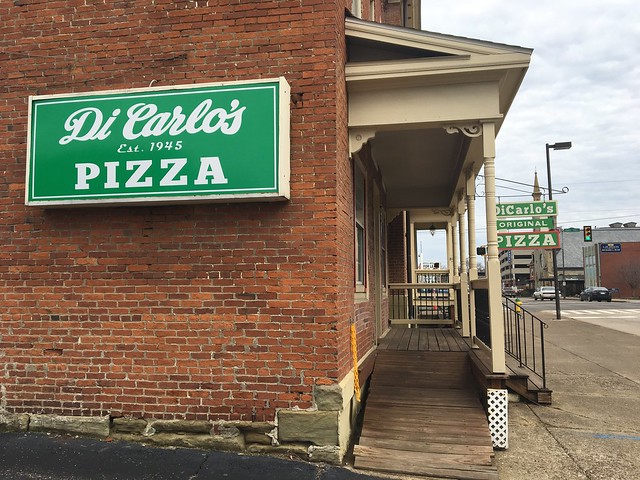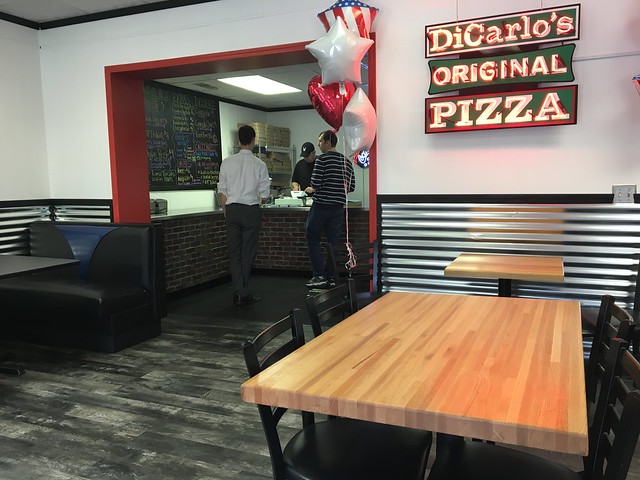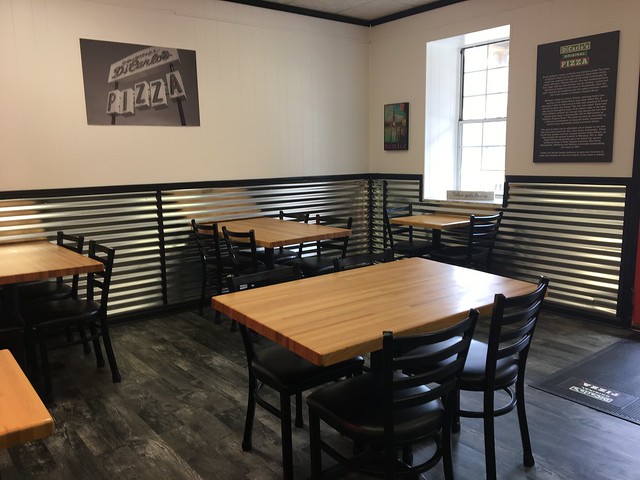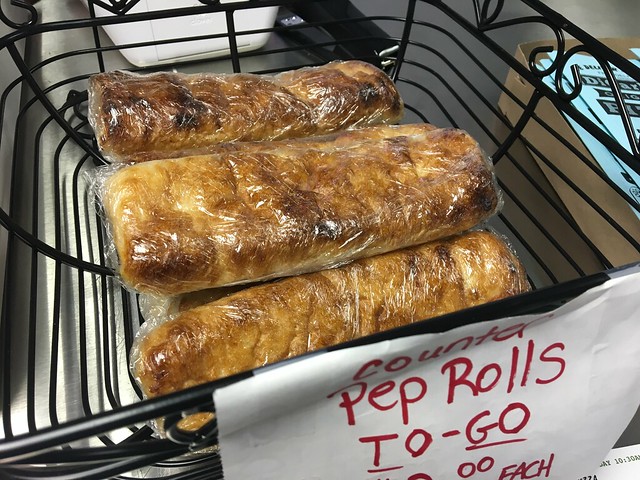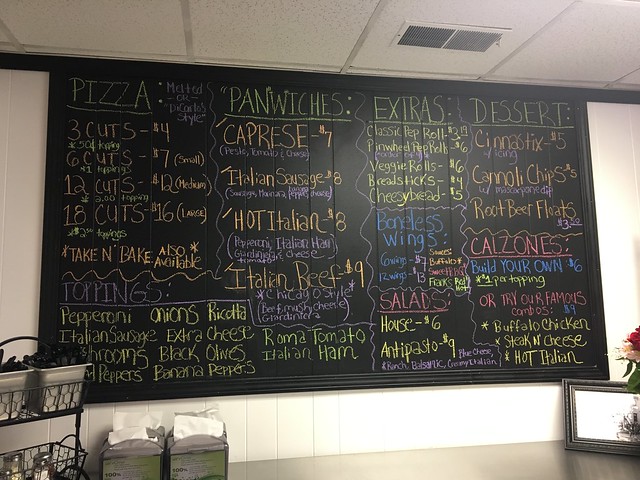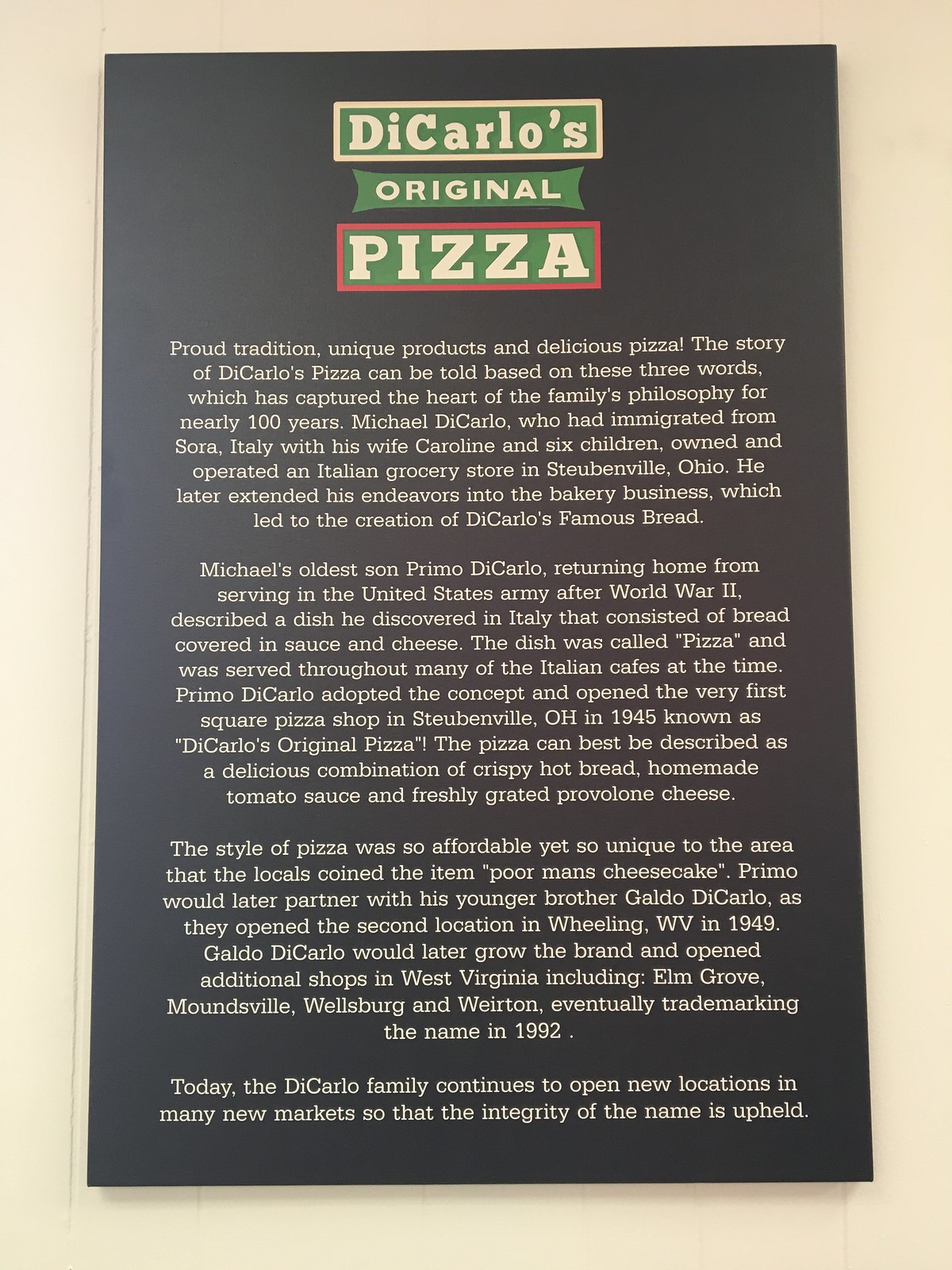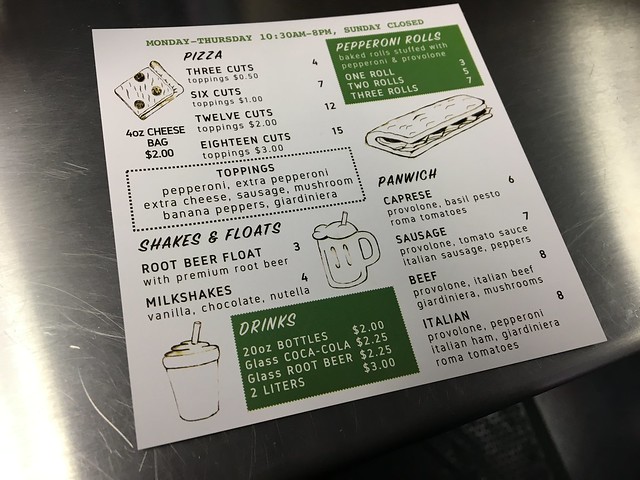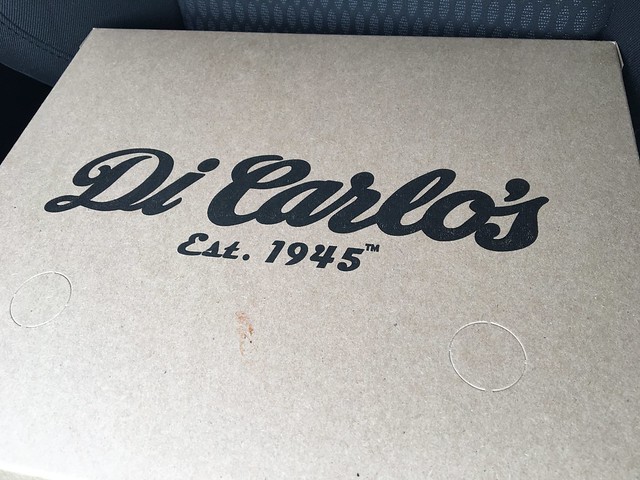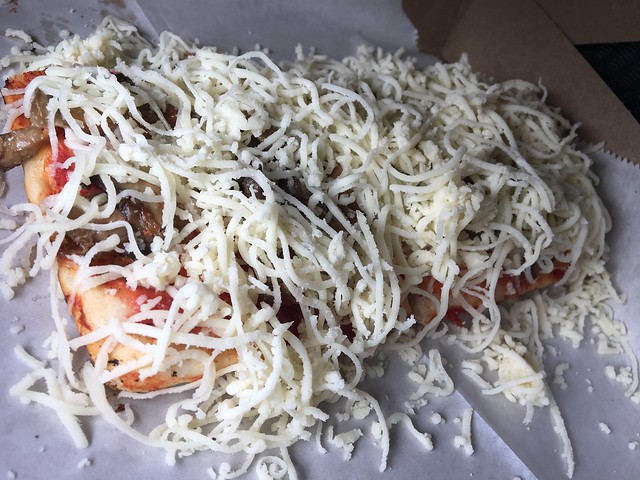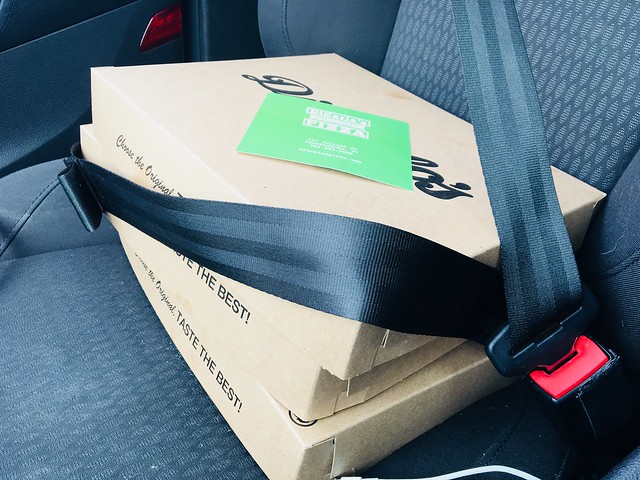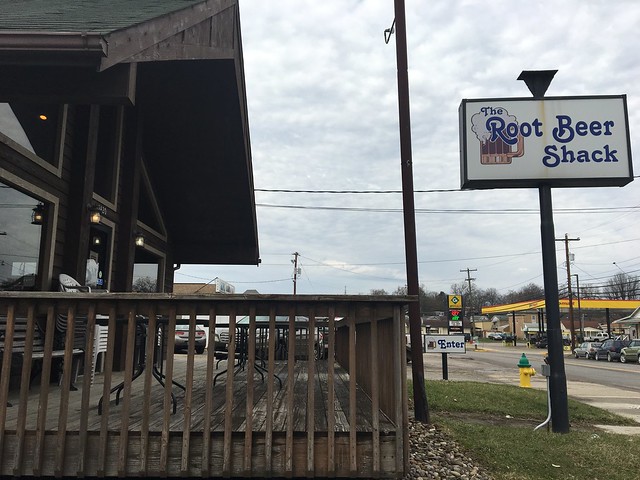
The Root Beer Shack is a Parkersburg restaurant that serves up frosty root beers and a ton of different hot dogs.
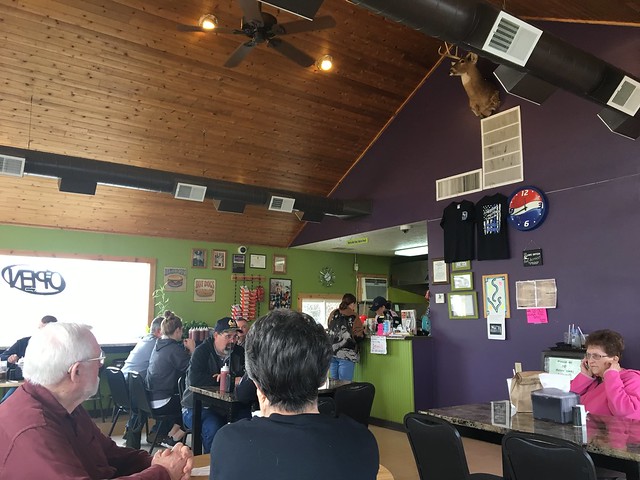
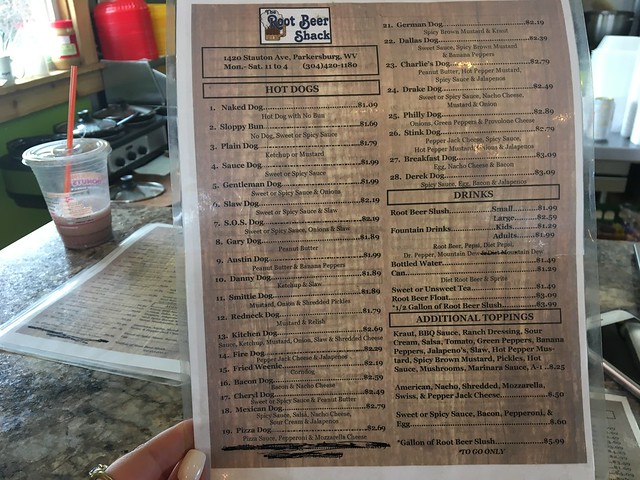
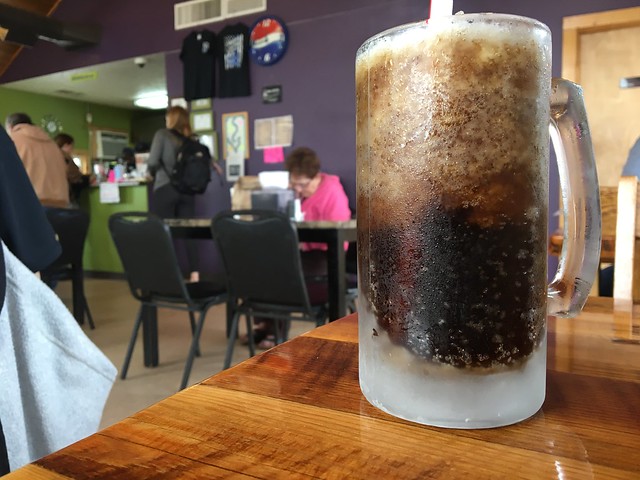
Small root beer slush (with a free refill!)
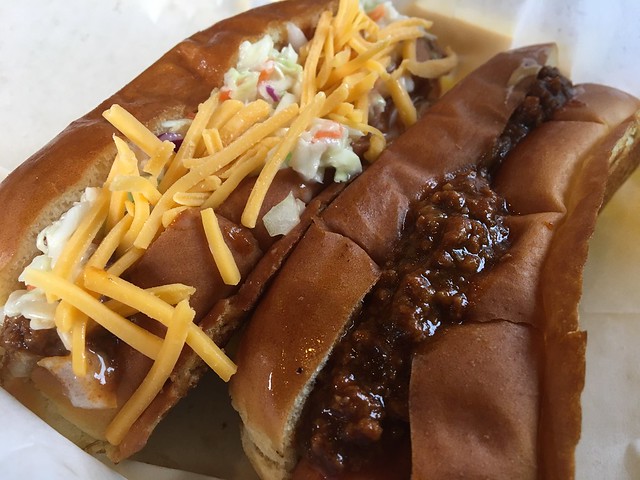
Kitchen dog with ketchup, mustard, sauce, slaw, cheese and onions. Cheryl dog with peanut butter and sweet chili!
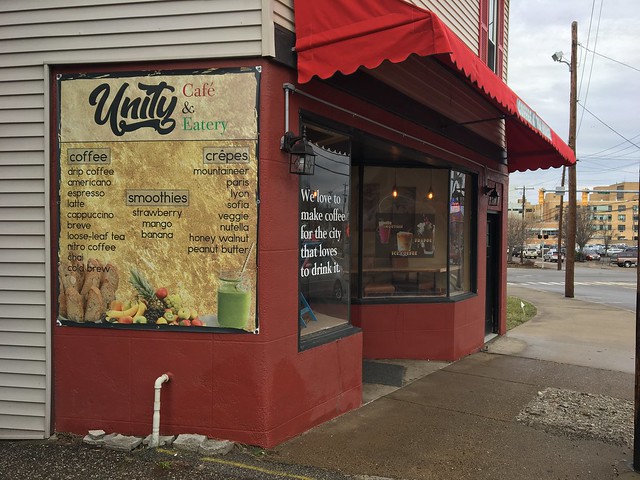
Unity Cafe is a new coffee shop in Parkersburg.
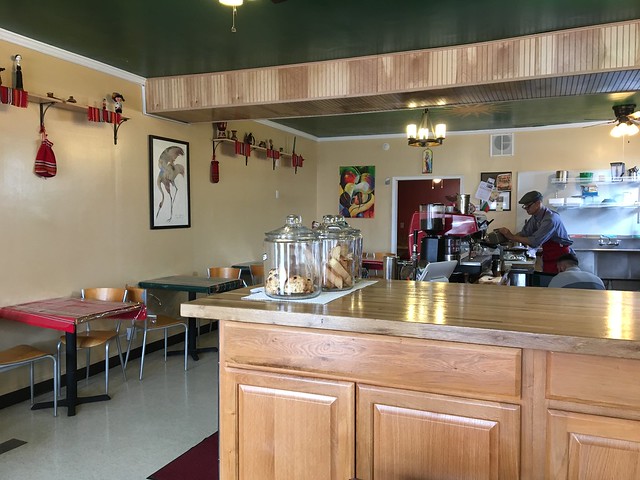
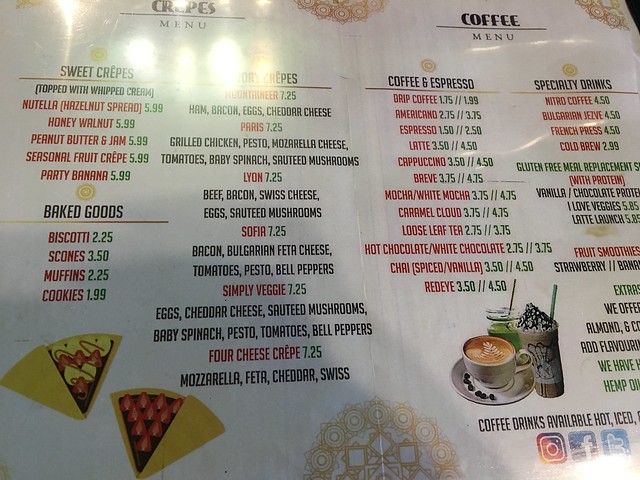
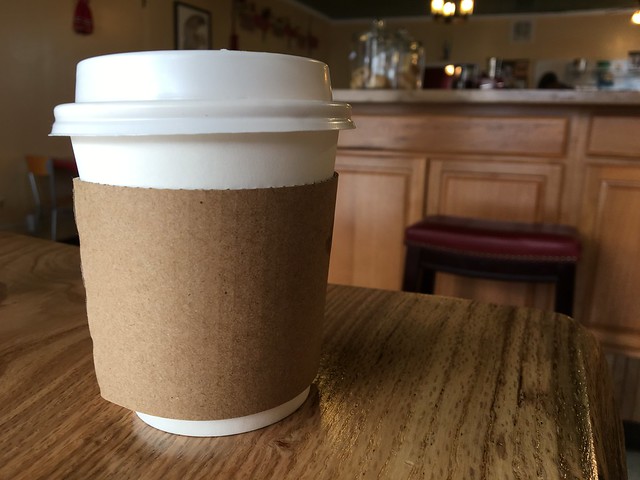
Caramel cloud - white chocolate, espresso, some other super delicious stuff
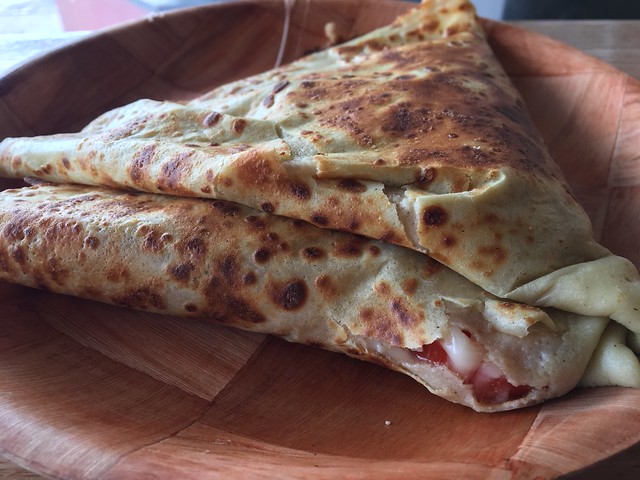
Paris - grilled chicken, tomatoes, mozzarella, pesto, spinach, mushrooms
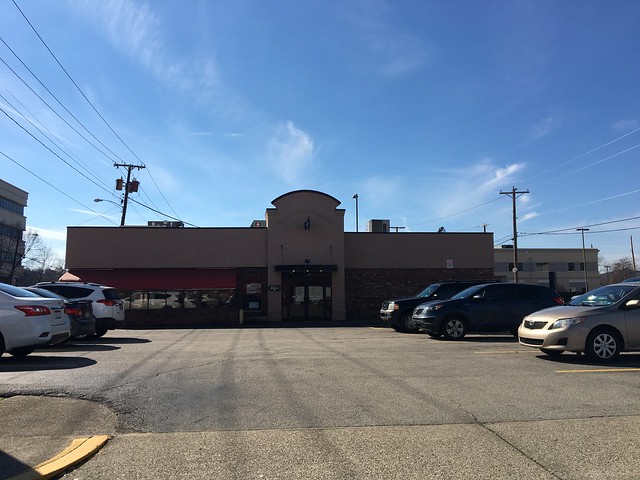 While I'm most passionate about telling the stories of local restaurants and the culinary space they occupy in our culture, it's always fascinating to learn about local chains or other restaurants not found all across the state, too.
While I'm most passionate about telling the stories of local restaurants and the culinary space they occupy in our culture, it's always fascinating to learn about local chains or other restaurants not found all across the state, too.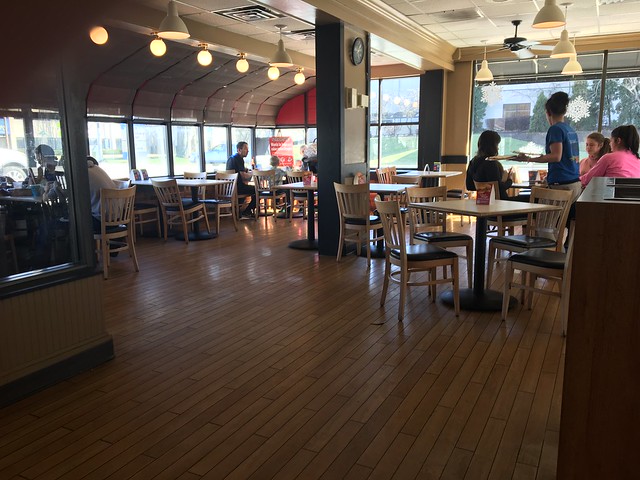 There are a couple chains I've noticed in the Kanawha Valley that I haven't seen elsewhere.
There are a couple chains I've noticed in the Kanawha Valley that I haven't seen elsewhere.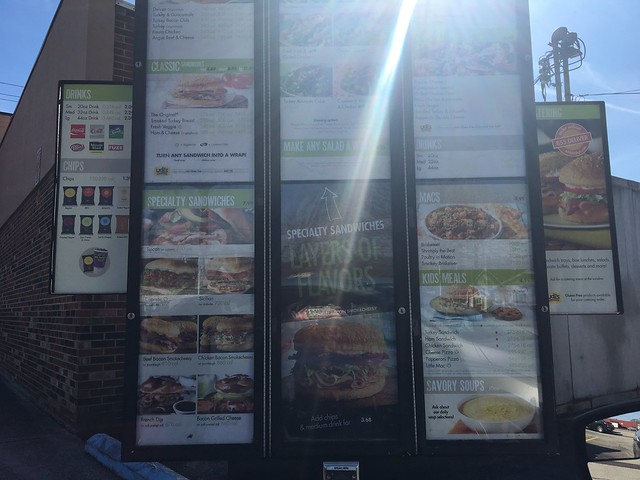 First, Schlotzsky's. There's one in South Charleston and another in Huntington.
First, Schlotzsky's. There's one in South Charleston and another in Huntington.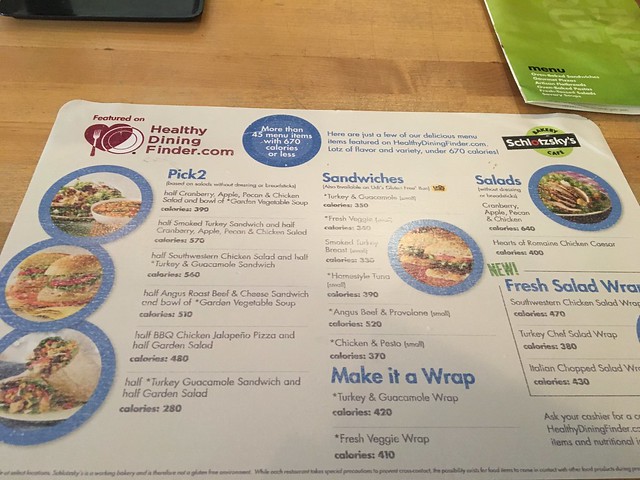 It specializes in sandwiches, specifically "The Original." It's lean smoked ham, Genoa and cotto salamis, and melted cheddar, mozzarella, and Parmesan cheeses layered with black olives, red onion, lettuce, tomato, mustard and a signature dressing on our toasted Sourdough bun.
It specializes in sandwiches, specifically "The Original." It's lean smoked ham, Genoa and cotto salamis, and melted cheddar, mozzarella, and Parmesan cheeses layered with black olives, red onion, lettuce, tomato, mustard and a signature dressing on our toasted Sourdough bun.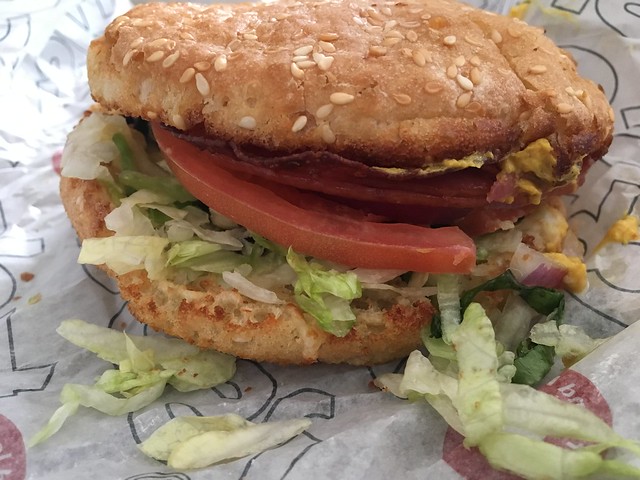 Another one you don't see in the rest of the state is Rally's or Checkers.
Another one you don't see in the rest of the state is Rally's or Checkers.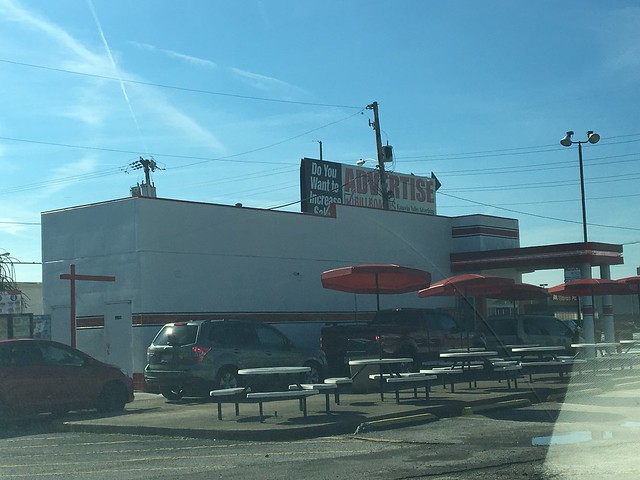 There are two Rally's: One in Charleston and one in Huntington. And, there is one Checkers in Nitro.
There are two Rally's: One in Charleston and one in Huntington. And, there is one Checkers in Nitro.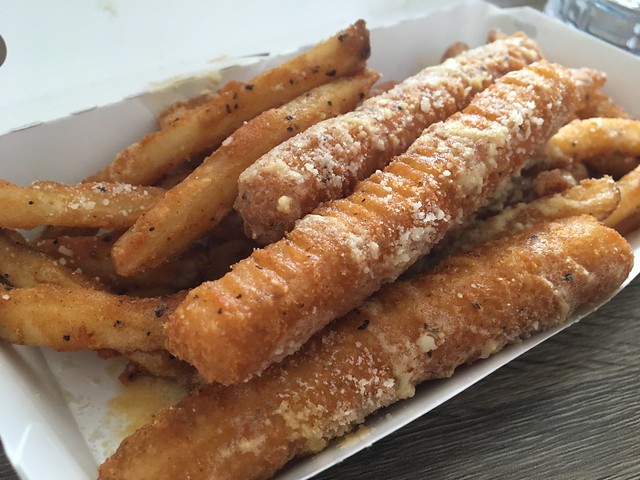 And while I haven't been yet, it appears there are just a handful of Donut Connections in the southern part of the state.
And while I haven't been yet, it appears there are just a handful of Donut Connections in the southern part of the state.What other chains you can't find everywhere?
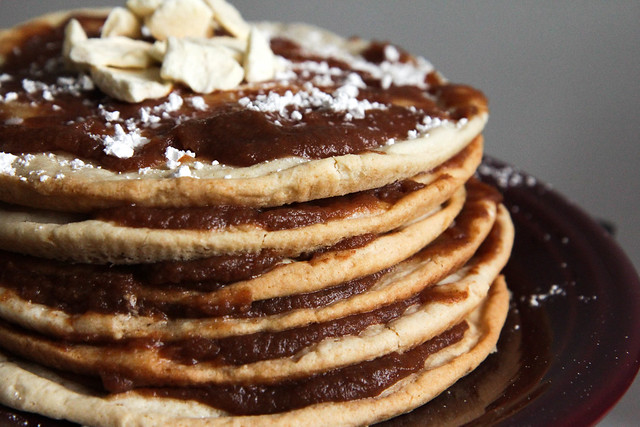
Here's my latest column for the Charleston Gazette-Mail.
At Appalachian weddings back in the day, it was common for guests to bring a layer of cake to celebrate the newly married couple. As more guests would arrive, cake layers in tow, the family would stack the layers — with a sweet apple mixture between — to create a large traditional mountain dessert: apple stack cake.
After all, wedding cakes were costly, and there was always an abundance of apples in the region. The more layers, the more popular the bride — this is all according to mountain folklore per Dave Tabler at the Appalachian History blog.
Others dispute this backstory, like Sheri Castle, an Appalachian writer and cookbook author who wrote in Our State magazine, “That’s a charming anecdote that we’d like to believe, but it doesn’t add up. A freshly stacked cake is no gift at all.”
Rather, she advocates for a cake with no fewer than five layers (up to as many as you can dream), that sits for at least two days. No exceptions.
“Some food historians say that James Harrod, the colonist and farmer who founded Harrodsburg in 1774, brought the stack cake to Kentucky from his home in Pennsylvania,” wrote Mark F. Sohn in “Appalachian Home Cooking: History, Culture, and Recipes.”
“While Harrod may have brought the first stack cake to Kentucky, the cake could not have been common until more than 100 years later when flour became readily available,” he added.
Meanwhile, Tennessee often claims it is, in fact, the birthplace of the dessert.
Whether the regional cake has roots in matrimony or perhaps the resourcefulness of a mountain chef with a cast-iron pan, a winter bounty of dried apples and sorghum, one thing is for sure: Apple stack cake has become the hallmark of Appalachian desserts.
With the many thin, nearly crisp layers of cake slathered with thick apple filling and dressed with cinnamon, ginger, mace and sugar, this cake towers over other desserts, both in stature and taste. It celebrates the Appalachian steadfast nature of employing modest ingredients in the cupboard — like dried apples from the summer harvest — to create a far-from-modest cake, explosive with flavor and rich heritage.
But being a Yankee West Virginian, as I’ve been called, this wasn’t part of my Appalachian experience. I remember baking a pie from the apple trees in my neighbor’s yard with a handmade crust, and I remember the bread pudding competitions at my family reunions. But I never had apple stack cake, and I wanted to try it.
Real mountain chefs craft this labor-intensive cake from sorghum molasses, buttermilk, flour and an apple filling made from dried apples, brown sugar, mace and more simmered on the stove for an hour. I took a shortcut approach involving sugar, milk, self-rising flour and apple butter in an adapted recipe shared with me on social media. I wanted to pay homage to this mountain tradition but on a time-friendly, budget-friendly scale.
The outcome was a surprisingly delicious dessert that paired perfectly with my coffee in the morning, a glass of milk at lunch and on its own at supper. And while I don’t have the background to compare it to a more traditional stack cake, I would say it would have made my mountain people proud.
We may not know if the apple stack celebrated marriage or the marriage of flavors of crisp layers with thick apple filling. But the end result is the same. This cake is representative of the innovative mountain culture that has strong ties to sense of place and illustrates that even the most simple ingredients can create a delicious treat.
All work property of Candace Nelson. Powered by Blogger.

